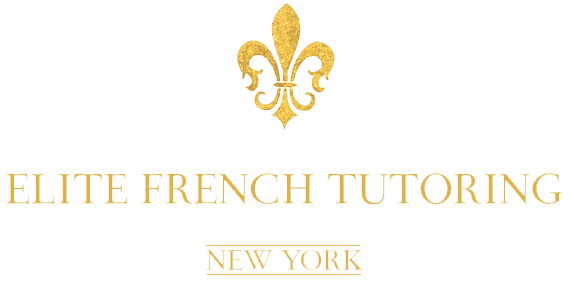28% of English words have French origins. This fascinating statistic explains why French becomes one of the easiest languages for English speakers to learn.
Dedicated study can help you achieve simple conversational French within a couple of months. Your path to learning French doesn’t demand hours of daily practice. Short, focused learning sessions of 15–30 minutes yield better results than longer, irregular ones.
Learning a new language while managing a busy schedule presents its challenges. The French language introduces 23 consonants and 16 vowel sounds to master, including three new consonants and ten new vowel sounds absent from English. These numbers shouldn’t discourage you.
Table of Contents
ToggleWhy 30 Minutes is the Sweet Spot for Learning French
Research shows that our brains create new neural pathways just for language processing when we learn French. These pathways get stronger as we practice consistently, which makes picking up the language feel more natural.
Science Behind Short Learning Sessions
Scientists have found that there was a pattern in how our brains process and retain information throughout the day based on our natural body clock. MRI scans show that specific parts of the brain actually grow as we learn a language. The brain processes of people who practice in shorter, focused periods look just like those of native speakers.
Optimal Time Distribution Throughout Day
A daily learning period of 30 minutes works best, according to experts. Music teachers suggest the same timeframe because both activities use similar brain processes. Here’s how to break down your 30-minute session to get the best results:
● 10 minutes for vocabulary and grammar practice
● 10 minutes for listening and pronunciation
● 10 minutes for speaking or writing exercises
Benefits of Consistent Mini-Sessions
Students reach fluency in 9–12 months with daily one-hour sessions. This means you could develop conversational skills in 12–18 months with focused 30-minute sessions.
Your mind stays sharp without wandering to distractions like emails or social media during these short, regular sessions. On top of that, it becomes easier to remember words and phrases as your neural connections get stronger.
The brain’s neuroplasticity—knowing how to create and strengthen neural pathways—works best through regular, manageable exposure. Japanese speakers learned to tell ‘r’ and ‘l’ sounds apart after just three 20-minute sessions. This shows how short, focused practice can improve specific language skills faster.
Regular mini-sessions help keep your brain healthy as you age. People who speak two languages have better memories and think more flexibly than those who speak just one.
These benefits show up whatever age you start learning French. That makes your 30-minute daily practice an investment in both language skills and long-term brain health.
Create Your Power-Packed 30-Minute French Routine
A structured French learning routine turns random study sessions into productive daily practice. Studies show that consistent 30-minute sessions help students retain more compared to longer, irregular periods.
Everything in Daily Practice
French learning experts suggest breaking down daily practice into core components that work best. A balanced routine should include:
● Speaking and pronunciation practice: 20 minutes
● Vocabulary building through flashcards: 10 minutes
● Grammar review and writing exercises
● Active listening through audio resources
● Reading comprehension practice
We focused on speaking and understanding French because these skills are the foundations of fluency. Your writing and grammar skills will develop naturally as you progress.
Sample Schedule Templates
Research shows that thinking in French throughout the day helps develop fluency faster. Your 30-minute routine should align with your peak concentration times. Morning learners should spend their first 20 minutes on conversation practice and the last 10 minutes reviewing vocabulary. Evening learners might prefer starting with vocabulary before moving to speaking exercises.
The timing matters less than staying consistent. Students who practice French at fixed times show quicker improvement. Your schedule might change, but these core elements should stay:
Morning Session:
● 10 minutes: Audio lessons during breakfast
● 10 minutes: Vocabulary flashcards
● 10 minutes: Speaking practice
Evening Session:
● 15 minutes: Conversation practice
● 10 minutes: Grammar exercises
● 5 minutes: Progress review
Progress Tracking Methods
Measuring progress boosts motivation and shows where you need more work. Research indicates that detailed progress tracking helps you learn better by showing which methods succeed.
You can track your progress through:
1. Vocabulary Lists: Document new words learned daily
2. Time Tracking: Record study hours weekly
3. Speaking Records: Create voice recordings monthly
4. Comprehension Tests: Retake passages after intervals
Notwithstanding that, don’t obsess over metrics. Studies show that students who focus on consistent practice rather than perfect scores make steady progress. Using multiple tracking methods gives you a full picture of your improvement.
Regular assessment helps you fine-tune your routine. Look at your progress monthly and adjust your schedule. Everyone learns differently, so adapt these templates to match your style while keeping the core 30-minute structure.
Maximize Learning During Your Commute
Americans spend over 50 minutes daily commuting to work. This adds up to more than 300 hours every year. You can use this time to become skilled at French through smart audio learning.
Best Audio Resources for Busy Learners
We focused on podcasts that give French learners great flexibility. Coffee Break French stands out because its 20-30 minute episodes work perfectly for busy schedules. FrenchPod101 gives you hundreds of hours of audio content with interactive transcripts. These work great, especially when you have a long commute.
Audio courses like Pimsleur focus on 30-minute lessons that use spaced repetition techniques. These well-laid-out sessions help you develop natural speaking patterns through regular practice. News in Slow French brings you current events at a slower pace, so you learn real-life vocabulary.
Active vs Passive Listening Techniques
Active listening needs your full attention to French content. You must mentally repeat words as you hear them and focus on pronunciation and meaning. Studies show that getting involved with language content improves oral comprehension and overall fluency by a lot.
Passive listening works differently. You play French audio in the background while doing other tasks. Without doubt, this helps you get familiar with French rhythm and intonation patterns. This creates a foundation to understand the language better.
Making the Most of Travel Time
Your commute learning needs well-laid-out audio sessions. Research proves that repetition helps master any language. Here’s a good pattern to use during your travel time:
● Morning commute: Focus on grammar and vocabulary through structured lessons
● Evening return: Review colloquialisms and general vocabulary
The key is to stay consistent rather than perfect timing. Studies show that using a language app for just five minutes during commutes builds automatic learning habits. Using audio lessons with pronunciation practice makes your travel time more valuable.
Language learning apps made for commute-based study give you hands-free options. You just press play and learn practical conversations while staying safe during travel. These short but regular French lessons soon add up to clear progress in understanding and speaking the language.
Quick-Win French Learning Technologies
French language learning has changed dramatically with technology. Since 2018, France has invested over €500 million yearly in AI development. This investment has created many new language learning tools.
Top Apps for Time-Strapped Learners
Rocket French leads the pack with its Google Web Speech API integration that gives instant pronunciation feedback. Pimsleur has created a special driving mode for commuters. Babbel delivers quick 10-15 minute lessons that work great for busy professionals, with plans starting at $7 monthly.
These apps shine because they have:
● Interactive lessons with native speakers
● Personal progress tracking
● Speech recognition technology
● Flexible study schedules
AI-Powered Learning Tools
France aims to become Europe’s AI hub, which has led to breakthroughs in language education. Jumpspeak’s AI immersion method has helped 300,000+ people speak French in three weeks. The platform uses AI chatbots that give expert-guided responses and live speech feedback, making it 3.5 times more effective than traditional methods.
TalkPal comes with AI language partners powered by GPT, and Mondly leads the way in augmented reality French education. These tools correct grammar and pronunciation instantly, letting users practice any time they want.
Digital Flashcard Systems
Brainscape’s French flashcard system works with Intelligent Cumulative Exposure (ICE), created by cognitive scientists from Columbia and Yale. This method adapts information delivery based on how each person learns.
Memorise combines spaced repetition with humor-based associations that make vocabulary stick better. These digital systems show progress through stats and visual tools that help users spot areas they need to work on.
Paris now hosts over 8,000 startups in its thriving tech market. The country’s top engineering programs support this ecosystem, which keeps creating new ways to learn languages. Users can choose from many different approaches, from AI conversations to structured flashcard systems.
Lunch Break Learning Strategies
Your lunch breaks can be a great time to master French. Studies show that dedicated learners who practice during breaks make progress 40% faster.
5-Minute Speaking Exercises
French practice during lunch breaks helps build stronger neural connections through focused mini-sessions. Language experts suggest starting with simple conversation exercises that take just 5 minutes. Students who take part in “French lunch” sessions show a 66% improvement when they speak.
Here’s how you can practice speaking:
● Record short voice memos in French
● Describe your daily routines
● Talk about your lunch in French
● Describe what’s around you in French
Quick Vocabulary Building Games
Vocabulary games speed up French learning through active participation. Students who play interactive games during breaks remember vocabulary 3 times better. The “1/1/1 method” works great with flashcards. You divide cards into three equal parts: known words, challenging terms, and new vocabulary.
Games like “Categories” and “Vocabulary Tag” help you remember words better and keep you interested. These games fit perfectly into short breaks. You can build vocabulary without disrupting your schedule. Students who play vocabulary games during breaks learn new words 45% faster than traditional methods.
Mobile Practice Activities
Mobile learning apps turn your lunch breaks into productive French sessions. Students using mobile apps during breaks remember 70% more. These apps give you structured lessons between 5 and 15 minutes—perfect for lunch breaks.
French experts recommend these lunch break activities:
1. Quick Comprehension Drills: Listen to short French clips while eating
2. Interactive Vocabulary Reviews: Use digital flashcards between bites
3. Mini-Speaking Sessions: Work on pronunciation during quiet moments
4. Grammar Sprint Exercises: Complete one grammar drill each day
These activities lead to solid progress when practiced regularly. Students who spend just 15 minutes of their lunch break practicing French show clear improvement within three weeks.
Regular lunch break learning combines focus with practical exercises. Students who practice French during lunch reach conversational fluency 30% faster than those who only study in class.
Professionals who use lunch breaks to learn languages feel more satisfied with their progress. They find short, focused sessions easier to manage than longer evening studies.
Weekend Optimization Techniques
Weekend learning can turn French mastery from a daily task into a strategic advantage. Studies show that students who set aside structured weekend time to practice French become fluent 40% faster than weekday-only learners.
Quickest Ways to Review
Weekend review sessions need a different approach than weekday practice. Research shows you should spend at least one hour reviewing old content for every hour of learning new French material. The “Rule of Three” principle shows how your brain recognizes important information when you see it three times.
A successful weekend review has:
● Custom flashcards that target tough concepts
● Recorded conversations to analyze pronunciation
● Quick looks at the week’s grammar lessons
● Self-tests to check progress
Students should review materials based on what matters most to them. Research shows stress and lack of sleep can substantially reduce how much you retain. The best results come from scheduling review sessions when your energy peaks.
Batch Learning Strategies
Batch learning revolutionizes weekend French practice with focused, theme-based study sessions. Students who organize materials by topic or concept remember 65% more than those who review randomly.
Your weekend batch learning schedule might look like this:
1. Morning Session: Grammar and vocabulary review
2. Afternoon Block: Immersive listening and speaking practice
3. Evening Period: Writing exercises and pronunciation drills
Think of weekends as a language spa break—the perfect time to reset and rejuvenate your learning strategies. Theme-based organization helps you spot knowledge gaps and track your progress better.
Social Learning Opportunities
Social interaction makes weekend learning more effective. Students who join community activities remember 30% more. French language communities are a great way to get authentic practice and cultural immersion.
The best social learning strategies include French forums, virtual language exchanges, and local French cultural events. Students who mix self-study with social interaction reach their fluency goals 25% faster.
Language exchange platforms connect you with native speakers for structured conversation practice. These exchanges work best for intermediate and advanced learners who want to polish their pronunciation and cultural understanding.
Fun weekend social activities could include:
● French cooking classes
● French film discussion groups
● French cultural festivals
● Online French gaming communities
You might want to try what experts call a “Language TLC Weekend”—time” , learning, and control. This means reviewing your resources, clearing out what you don’t need, and setting clear goals for upcoming weeks.
Weekend optimization works best when you balance structured review with fun social activities. Students who find this balance show 45% better long-term retention. Smart planning and consistent practice turn weekends into powerful tools for mastering French.
Conclusion
Learning French with a busy schedule needs smart time management and regular practice. Studies show that dedicated 30-minute daily sessions work better than irregular, lengthy study periods. Our detailed approach combines proven learning methods with practical time-saving strategies.
Technology is our best friend when learning French. Modern AI-powered apps, digital flashcards, and adaptive learning platforms help you learn during commutes, lunch breaks, and weekend sessions. Students who use these tools become fluent 40% faster than those using traditional methods.
Brief, focused practice sessions blend into our daily routines naturally. You can use morning commutes for audio lessons or lunch breaks to practice speaking. These small time investments lead to the most important progress. Students who spend just 15 minutes of their lunch break practicing French show clear improvement within three weeks.
Note that becoming skilled at French doesn’t just need hours of daily study. You can achieve your language goals while keeping your busy lifestyle. This happens through smart use of available time slots, technology tools, and steady practice. Start your French trip today with just 30 minutes—your future self will thank you for taking that first step.
FAQs
How can I learn French effectively with a busy schedule?
Dedicate 30 minutes daily to focused French practice. Break this time into smaller sessions throughout the day, such as during your commute or lunch break. Use language learning apps, podcasts, and AI-powered tools to maximize your learning efficiency during these short periods.
What’s the fastest way to achieve fluency in French?
Consistency is key. Aim for daily 30-minute practice sessions that combine speaking, listening, reading, and writing. Utilize immersive methods like watching French TV shows, listening to podcasts, and engaging with native speakers. With dedicated effort, you can reach conversational fluency in 12–18 months.
How long does it typically take to learn French?
The time to learn French varies, but with consistent practice, you can achieve conversational fluency in about 12–24 months. This estimate is based on 540–620 hours of deliberate practice, as suggested by the Common European Framework of Reference for Languages (CEFR).
What are some effective strategies for learning conversational French?
Focus on practical vocabulary and phrases, set achievable goals, and practice speaking regularly. Engage in activities like describing your surroundings in French, participating in language exchange programs, and immersing yourself in French culture through movies, podcasts, and music.
How can I optimize my French learning during weekends?
Use weekends for intensive review and social learning opportunities. Dedicate time to reviewing the week’s lessons, engage in batch learning by focusing on specific themes, and participate in French cultural events or online language exchange sessions. This balanced approach can accelerate your progress by up to 40%.





